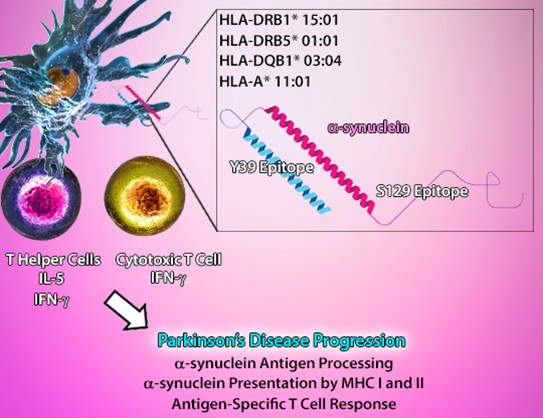In Parkinson's disease (PD) patients, certain MHC alleles have been found to be more prevalent than others. Sulzer et al. wanted to determine whether PD is associated with an antigen-specific T cell response to α-Synuclein, a hallmark PD protein that aggregates and forms Lewy Bodies. Sulzer produced an α-Synuclein peptide library and tested PBMCs from PD patients. They measured IFN-γ production from Th1 and CD8+ T cells, as well as IL-5 secretion from Th2 cells.
The Y39 and S129 epitope regions elicited the most immune responses from the listed MHC I and II alleles below. These epitopes are sensitive to PD-promoting mutations, and the alleles are present at higher frequencies in PD patients compared to healthy controls. This indicates that α-Synuclein in the cerebrospinal fluid could be captured by antigen presenting cells, displayed by PD-associated MHC alleles, and promote adaptive immune responses.

Adapted from Sulzer, et al. 2017. Nature. 546:656. Pubmed
BioLegend offers several antibodies to detect phosphorylated and aggregated/fibrillar forms of α-Synuclein. In addition, we provide Flex-T™, a unique tetramer system that allows peptides of interest to be exchanged in the MHC groove. |









 Login / Register
Login / Register 






Follow Us